








The Hope House Scottsdale
Verified Center
This provider's information has been quality-checked by Recovery.com's Research Team for accuracy and completeness, including center verification through appropriate third-party organizations.
Treatment Focus
This center treats substance use disorders and co-occurring mental health conditions. Your treatment plan addresses each condition at once with personalized, compassionate care for comprehensive healing.
Primary Level of Care
Offering intensive care with 24/7 monitoring, residential treatment is typically 30 days and can cover multiple levels of care. Length can range from 14 to 90 days typically.
Treatment Focus
This center treats substance use disorders and co-occurring mental health conditions. Your treatment plan addresses each condition at once with personalized, compassionate care for comprehensive healing.
Primary Level of Care
Offering intensive care with 24/7 monitoring, residential treatment is typically 30 days and can cover multiple levels of care. Length can range from 14 to 90 days typically.
Provider's Policy
The Hope House wants to provide the highest quality treatment and they will work with you to verify your insurance benefits. They NOT accept Medicaid, Medicare, AHCCCS, or any government funded insurance.
The Hope House Scottsdale
The Hope House Scottsdale
About The Hope House Scottsdale
The Hope House Scottsdale provides clients with the tools necessary to confront their addiction at the source by combining nutrition, exercise, and clinical care to support lasting wellbeing. Set in the hills of Scottsdale, their 10,000 square foot home serves only 10 clients at a time with 24/7 support from masters-level clinicians and licensed psychologists, ideal for people who value privacy and care shaped around their unique needs.
Improve Emotional Regulation and Well-Being
The Hope House helps clients navigate their darkest moments through tailored treatment planning, screenings for co-occurring mental health conditions, and an open-door policy for support between sessions. Their care blends modalities like dialectical behavior therapy (DBT), focused on emotional regulation, with mindfulness, sound bath therapy, and chiropractic care to strengthen relapse prevention and wellness. When appropriate, medication-assisted treatment (MAT) supports alcohol and opioid recovery alongside psychotherapy and wellness practices.
Recover in a Comfortable, Structured Environment
Clients recover in a home designed for structure, comfort, and healing. Amenities include a fully equipped fitness center with opportunities for group or individual training, a private movie theater, and a pool with mountain views. Additional comforts include bedroom balconies, yoga and meditation spaces, a massage room, a basketball court, transportation assistance, and group activities that support well-being.
Maintain Progress with Planning and Alumni Support
The Hope House connects clients with follow-up care and recovery resources to sustain progress made in residential treatment. Their team coordinates next-step planning, links clients to appropriate outpatient services when needed, and assists in identifying sober living options that add structure and accountability during early recovery. Alumni support offers ongoing connection and encouragement to help clients remain engaged in their recovery after discharge.

Highlights from the Center
Highlights
These highlights are provided by and paid for by the center.
Trauma-Informed Care
Master's Level Therapists
Private Rooms Available
Tech Friendly
Center Overview
Treatment Focus
This center treats substance use disorders and co-occurring mental health conditions. Your treatment plan addresses each condition at once with personalized, compassionate care for comprehensive healing.
Joint Commission Accredited
The Joint Commission accreditation is a voluntary, objective process that evaluates and accredits healthcare organizations (like treatment centers) based on performance standards designed to improve quality and safety for patients. To be accredited means the treatment center has been found to meet the Commission's standards for quality and safety in patient care.
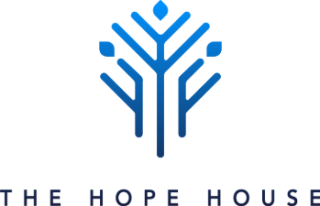
The Hope House Scottsdale
Insurance Accepted
Cash Pay Rates
Estimated Cash Pay Rate
Center pricing can vary based on program and length of stay. Contact the center for more information. Recovery.com strives for price transparency so you can make an informed decision.


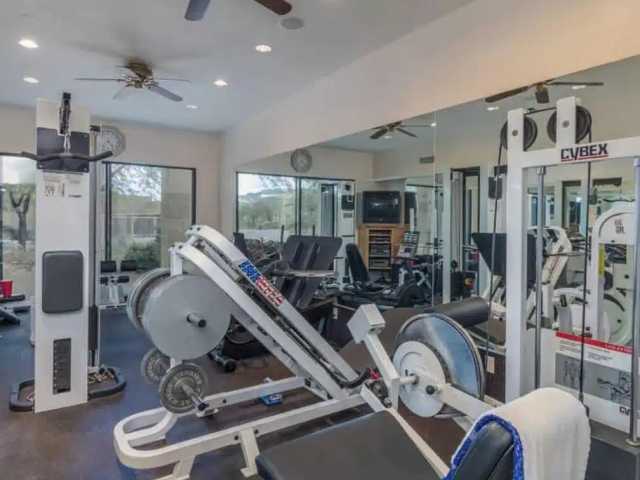

Recovery.com Verified Listing
Recovery.com verified that the name, location, contact information and license to operate for this treatment provider are valid and up-to-date.

Joint Commission Accredited

Licensed by Arizona DHS
Recovery.com is an independent, third-party mental health resource. Verification does not imply endorsement and does not guarantee the quality of treatment services.
Meet Your Care Team

Dr. Randy Gelow
Medical Director
MD

Alex Spritzer
Nurse Practitioner
MSN, FNP-C, CARN-AP, PMHNP-BC

Brenna Gonzales
Clinical Director
MSC, LPC-S

Avery Champagne
Registered Nurse
RN
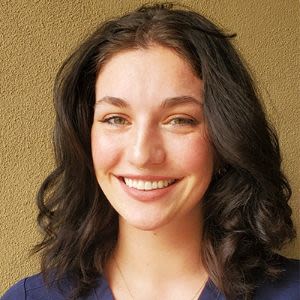
Charissa Peraud
Registered Nurse
RN
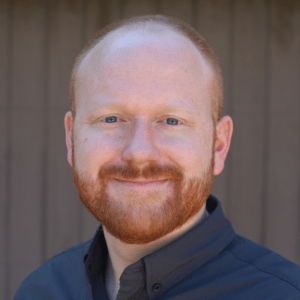
David Ballard
Clinical Therapist
MA, LAC
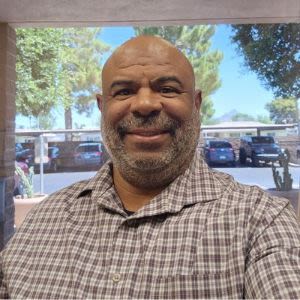
Larry Harris
Clinical Therapist
MSC, LPC

Jada Shorty
Director of Operations & Compliance

Clay Williams
Case Manager
BA, BHT
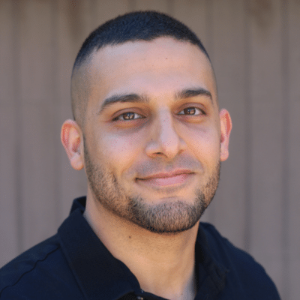
Cameron Ghaffari
Case Manager
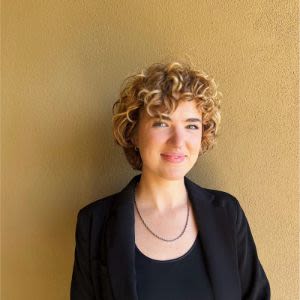
Sophie Badgett
Client Coordinator
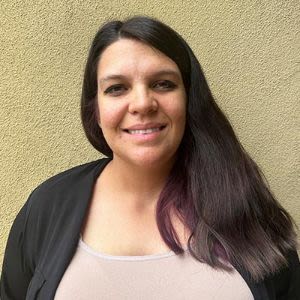
Melissa Scales
Lead Behavioral Health Technician

Dr. Cassandra Gallegos
Acupuncture Therapist
DAC, LAC

Ann Wilson
Equine Therapist
LPC, MSC

Laura Goethe Rankel
Yoga Instructor
E-RYT 500, RCYT, YACEP, Certified Yoga Nidra Facilitator

Terri Kaiser
Meditation/Sound Theraplist

Alicia Krussow
Massage Therapist
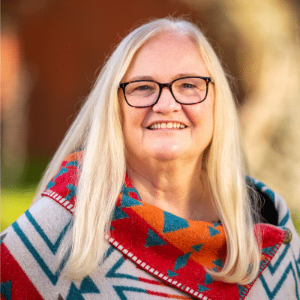
Patricia Miller
Art Therapist
LPC, CSAT, SEP, EMDR
Your Care Options
Specializations
Alcohol
Using alcohol as a coping mechanism, or drinking excessively throughout the week, signals an alcohol use disorder.
Co-Occurring Disorders
A person with multiple mental health diagnoses, such as addiction and depression, has co-occurring disorders also called dual diagnosis.
Cocaine
Cocaine is a stimulant with euphoric effects. Agitation, muscle ticks, psychosis, and heart issues are common symptoms of cocaine abuse.
Drug Addiction
Drug addiction is the excessive and repetitive use of substances, despite harmful consequences to a person's life, health, and relationships.
Executives
Executive treatment programs typically directly support the needs of people who manage businesses and may provide flexible schedules and office space to allow work during treatment.
Heroin
Heroin is a highly addictive and illegal opioid. It can cause insomnia, collapsed veins, heart issues, and additional mental health issues.
Opioids
Opioids produce pain-relief and euphoria, which can lead to addiction. This class of drugs includes prescribed medication and the illegal drug heroin.
Trauma
Some traumatic events are so disturbing that they cause long-term mental health problems. Those ongoing issues can also be referred to as "trauma."
Who We Treat
Executives
Executive treatment programs typically directly support the needs of people who manage businesses and may provide flexible schedules and office space to allow work during treatment.
Young Adults
Emerging adults ages 18-25 receive treatment catered to the unique challenges of early adulthood, like college, risky behaviors, and vocational struggles.
Midlife Adults
For adults ages 40+, treatment shifts to focus on the unique challenges, blocks, and risk factors of their age group, and unites peers in a similar community.
Professionals
Busy, high-ranking professionals get the personalized treatment they need with greater accommodations for work, privacy, and outside communication.
Treatment Services
Detox
Detox fully and safely removes toxic substances from the body, allowing the next steps in treatment to begin with a clean slate.
Residential
In a residential rehab program, patients live onsite, with access to daily treatment and 24-hour care. An average stay is 30-90 days.
Approaches
Evidence-Based
A combination of scientifically rooted therapies and treatments make up evidence-based care, defined by their measured and proven results.
Holistic
A non-medicinal, wellness-focused approach that aims to align the mind, body, and spirit for deep and lasting healing.
Non 12 Step
Non-12-Step philosophies veer from the spiritual focus of the 12-Steps and instead treat the disease of addiction with holistic or secular modalities.
Personalized Treatment
The specific needs, histories, and conditions of individual patients receive personalized, highly relevant care throughout their recovery journey.
Therapies
1-on-1 Counseling
Patient and therapist meet 1-on-1 to work through difficult emotions and behavioral challenges in a personal, private setting.
Meditation & Mindfulness
A practiced state of mind that brings patients to the present. It allows them to become fully aware of themselves, their feelings, and the present moment.
Trauma-Specific Therapy
This form of talk therapy addresses any childhood trauma at the root of a patient's current diagnosis.
Rational Emotive Behavior Therapy
A type of cognitive therapy that identifies negative self-defeating thoughts and behaviors, rewriting beliefs to be positive, empowering, and present.
Art Therapy
Visual art invites patients to examine the emotions within their work, focusing on the process of creativity and its gentle therapeutic power.
Equine Therapy
Guided interactions with trained horses, their handler, and a therapist can help patients improve their self-esteem, trust, empathy, and social skills.
Experiential Therapy
With this approach, patients heal by doing. Therapists help patients process difficult emotions to speak, using guided activities like art or dance.
Conditions We Treat
Bipolar
This mental health condition is characterized by extreme mood swings between depression, mania, and remission.
Depression
Symptoms of depression may include fatigue, a sense of numbness, and loss of interest in activities. This condition can range from mild to severe.
Post Traumatic Stress Disorder
PTSD is a long-term mental health issue caused by a disturbing event or events. Symptoms include anxiety, dissociation, flashbacks, and intrusive thoughts.
Trauma
Some traumatic events are so disturbing that they cause long-term mental health problems. Those ongoing issues can also be referred to as "trauma."
Substances We Treat
Alcohol
Using alcohol as a coping mechanism, or drinking excessively throughout the week, signals an alcohol use disorder.
Benzodiazepines
Benzodiazepines are prescribed to treat anxiety and sleep issues. They are highly habit forming, and their abuse can cause mood changes and poor judgement.
Chronic Relapse
Consistent relapse occurs repeatedly, after partial recovery from addiction. This condition requires long-term treatment.
Co-Occurring Disorders
A person with multiple mental health diagnoses, such as addiction and depression, has co-occurring disorders also called dual diagnosis.
Cocaine
Cocaine is a stimulant with euphoric effects. Agitation, muscle ticks, psychosis, and heart issues are common symptoms of cocaine abuse.
Drug Addiction
Drug addiction is the excessive and repetitive use of substances, despite harmful consequences to a person's life, health, and relationships.
Heroin
Heroin is a highly addictive and illegal opioid. It can cause insomnia, collapsed veins, heart issues, and additional mental health issues.
Methamphetamine
Methamphetamine, or meth, increases energy, agitation, and paranoia. Long-term use can result in severe physical and mental health issues.
Languages
Aftercare
Care Designed for Your Needs
Personal Amenities
Amenities
Special Considerations
Executive Program
Addiction and mental health treatment for executives typically involves high discretion, greater technology access, and more private, 1-on-1 care.
Flexible technology policies
Centers with flexible technology policies allow professionals to stay in touch with work and give patients a greater sense of connection and normalcy.
Activities
Yoga
Yoga is both a physical and spiritual practice. It includes a flow of movement, breathing techniques, and meditation.
Off-Site Activities
Off-Site Amenities
Learn More About the Center
What to Bring to the Hope House
Explore essentials before admission (and what to leave at home) with this approved packing list.
Trauma Therapy in Residential Rehab Programs
Understand how trauma-specific care helps heal underlying wounds alongside addiction recovery.
The Hope House Culinary Program
Discover how learning about cooking and nutrition helps clients fortify life skills and gain confidence for lasting healing.
Residential MAT for Opioid Recovery
Learn how medication-assisted treatment in a live-in setting supports focused opioid recovery.
What people are saying
Treatment
4.4
Accommodations
4.4
Food & Nutrition
4.3
Value
4.4
Pros
- Friendly & Competent Staff (2)
Kate
Reviewed 08/01/24
Review from Rehabs.com
Jeff
Treatment in 2023 • (14 days) • Reviewed 08/22/23
Former Client
•Executive
Che
Reviewed 06/22/21
Review from Rehabs.com
Christina
Reviewed 05/18/21
Review from Rehabs.com
Linda
Reviewed 03/01/23
Review from Rehabs.com





